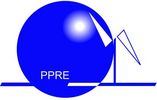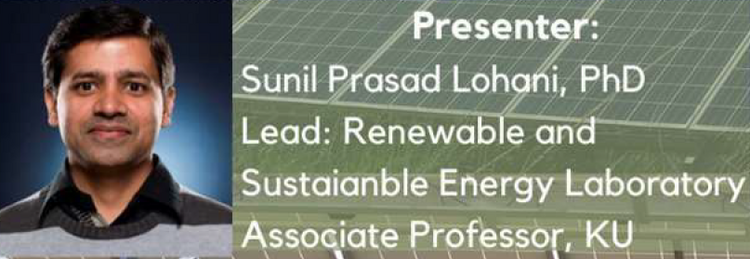The program started with a welcome remark from Prof. Manish Pokharel, Dean of School of Engineering, Kathmandu University. Dr. Sunil Lohani, the lead professor of RSEL, presented the proposal and way forward of “Solar Nepal Initiative”. Dr. Lohani stressed necessity for a suitable energy mix in Nepal and why the nation should think beyond hydropower energy for energy generation. He stated that the Solar and Hydropower sector should be complementary rather than competitive. “It is now extremely necessary for the decision makers, experts and planners from different sectors to think out of the box and to revisit the reasons for Nepal’s failure on many fronts for energy planning and seek evidence based policy interventions”, added Dr. Lohani while suggesting options for collaboration among government, private sector and academia. In the end, he suggested each sector to foster students for capacity development from the grassroots.
In response to Dr. Lohani’s proposition, executive member from Independent Power Producers’ Association, Nepal (IPPAN), Mr. Kuber Mani Nepal, presented the practical perspective from the private sector and stressed on the need for clarity of national policies along with establishment of infrastructures for testing and standard grading of solar energy relevant equipment. He, on behalf of IPPAN, strongly supports the Solar Nepal Initiative and expresses to work together in the consortium. Similarly, the Chairman of RECON, Mr. Guna Raj Dhakal, indicated that the target of at least 20% of Solar in energy mix might be achievable if relevant agencies get involved with the emphasis on technology development. He expressed RECON’s strong willingness to join Solar Nepal Initiative to take initiative forward.
The President of Solar Electric Manufacturers Association Nepal (SEMAN), Mr. Indra Khanal, was pragmatic about incorporation of new technology of Solar PV in energy mix as an alternative measure for energy generation in emergency situations. He has committed to support the Solar Nepal Initiative and join SEMAN in a consortium. One of the senior scientists of Nepal Academy of Science and Technology (NAST), Dr Suresh Kumar Dhungel, shed light on the established capacity of NAST towards Solar Energy. He expressed his willingness to support Solar Nepal Initiative through NAST. Deputy Executive Director of Alternative Energy Promotion Center (AEPC), Mr. Nawa Raj Dhakal, while supporting Solar Nepal Initiative, added that new energy measures should be carefully explored.
Joint Secretary, Mr. Madhu Bhetwal, informed about a bill being discussed in the parliament and other policy measures being explored with a view to gear up efforts to strengthen the energy sector. He expressed to support the initiative. Two leading professors, Prof. Dr. Ing. Ramesh Kumar Maskey and Prof. Dr. Amrit Man Nakarmi, also expressed their support to the initiative.
A general consensus among the various stakeholders of the energy sector was reached regarding the current energy scenario in Nepal. The consensus agreed to first solve the current problems of the energy sector in Nepal and plans to address challenges of the near future. Instead of shooting for stars, Solar Nepal - with the backing of various stakeholders of energy sectors in Nepal - aims to be down to earth and grounded in working towards integrating Solar Energy and its systems in the current energy and economic mix of Nepal.
Program Video: https://drive.google.com/drive/folders/1-ElSeR9E_-ZZ0KgKUOR3YVEP4URXAL_n




